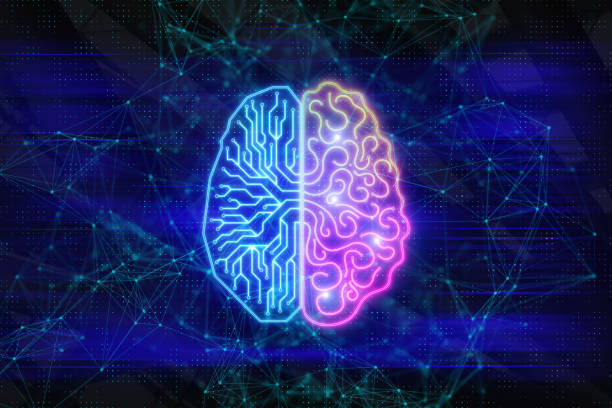While no firm universal data exists, IQ scores do show variations across age groups. Individuals aged 15-17 exhibit an average IQ of 108, which slightly decreases to 98 for those 25-34, and then rises to 114 for those over 65.
The distribution of IQ scores follows a normal distribution, with 50% of the population falling within the average range (90-109).
This phenomenon of increasing IQ scores over time is known as the “Flynn Effect,” which is attributed to factors such as improved education, nutrition, and technological advancements.
IQ is measured using standardized tests, such as the Wechsler Adult Intelligence Scale (WAIS), which are typically administered by licensed professionals. Let us get into the nitty-gritty of the same!
What is the Average IQ Score by Age?
There isn’t any firm data on average IQ by age available online. However, we found some information on IQ scores of specific age groups from reliable sources. Here is the breakdown of the average IQ score by age:
| Age Group | Average IQ Score |
| 15 – 17 years old | 108 |
| 18 – 20 years old | 105 |
| 21 – 24 years old | 100 |
| 25 – 34 years old | 98 |
| 35 – 44 years old | 101 |
| 45 – 54 years old | 107 |
| Over 65 years old | 114 |

Learn who has the lowest IQ in the world by country with our latest data.
IQ Score Distribution
IQ scores are distributed along a bell curve, with most individuals falling within the average range. Here is a breakdown of the IQ score distribution:
- Very Superior (130+): 2.2% of the population
- Superior (120-129): 6.7% of the population
- High Average (110-119): 16.1% of the population
- Average (90-109): 50% of the population
- Low Average (80-89): 16.1% of the population
- Borderline (70-79): 6.7% of the population
- Extremely Low (<70): 2.2% of the population
What is the Flynn Effect?
The Flynn Effect is a term coined by James R. Flynn to describe the steady increase in IQ scores across different populations over time. This increase is observed in both developed and developing countries, as well as across various age groups.
The Flynn Effect challenges the notion that intelligence is an innate, fixed trait. Instead, it suggests that environmental and cultural factors play a significant role in shaping intellectual abilities.

Some of the factors proposed to contribute to the Flynn Effect include improved education, better nutrition, and increased exposure to technology.
Since IQ tests are standardized to have a mean score of 100 and a standard deviation of 15, the increase in IQ scores over time necessitates that the tests be periodically re-normed to maintain their validity.
Additionally, the Flynn Effect highlights the importance of considering cultural and environmental factors when interpreting IQ scores.
Emotional intelligence often plays as big a role as IQ when it comes to relationships and decision-making. Studies show that people with lower emotional awareness may struggle with honesty and empathy, leading to trust issues. Sometimes, they cheat using different kind of hidden apps to conceal their actions, which only deepens the emotional gap between partners. Understanding both cognitive and emotional intelligence can help maintain healthier, more transparent relationships.
How are IQ Scores Calculated?
IQ scores are calculated by administering standardized tests to assess cognitive abilities in different areas, such as math, language, and spatial reasoning. These tests are typically administered by a licensed psychologist or other trained professional.
The Wechsler Adult Intelligence Scale (WAIS) is the most commonly used IQ test, designed for individuals aged 16 and older. The test consists of several sub-tests to measure different aspects of intelligence.

Once an individual has completed the test, their performance is compared to that of a representative population sample to determine their IQ score.
The average IQ score is 100, with scores ranging from 70 to 130 considered within the normal range.
Index Scales of Modern IQ Tests
Index scales are used in modern IQ tests to measure an individual’s cognitive ability comprehensively.
These scales measure various aspects of intelligence, providing a more accurate assessment of an individual’s intellectual abilities. Several index scales are commonly used in modern IQ tests, including:
1. Verbal Comprehension Index
The Verbal Comprehension Index measures an individual’s ability to understand and use language. This index includes tasks such as vocabulary, comprehension, and verbal reasoning.
2. Perceptual Reasoning Index
The Perceptual Reasoning Index measures an individual’s ability to process visual information and solve problems using nonverbal reasoning. This index includes tasks such as block design, matrix reasoning, and visual puzzles.
3. Working Memory Index
The Working Memory Index measures an individual’s ability to hold and manipulate information in their mind. This index includes tasks such as digit span and letter-number sequencing.
4. Processing Speed Index
The Processing Speed Index measures an individual’s ability to process information quickly and accurately. This index includes tasks such as symbol search and coding.
How to Improve Your IQ?
Improving your IQ is a popular topic, and fortunately, there are several ways to do so. Here are some tips to help increase your intelligence quotient:

- Exercise your brain: Just as physical exercise is essential, brain exercise is also crucial. Engage in activities such as puzzles, chess, or any other complex games that challenge your brain.
- Read: Reading is an excellent way to improve your IQ. It challenges your mind and helps expand your knowledge.
- Learn new things: Learning new things helps your brain make connections and improve cognitive functions.
- Get enough sleep: Rest is vital for your brain to function correctly. Sleep can lead to memory problems, lack of concentration, and poor cognitive performance.
- Eat a healthy diet: Nutrition plays a role in brain development and function. Eat foods rich in omega-3 fatty acids, vitamins, and minerals to improve brain health.
- Challenge yourself: Push yourself out of your comfort zone and take on new challenges. This will help improve your problem-solving skills and cognitive abilities.
- Practice mindfulness: Mindfulness practices can help reduce stress and improve cognitive performance.
Following these tips can improve your IQ and overall brain function. Remember, intelligence is not a fixed trait, and it can be improved with effort and dedication.
Related read:
- Effective strategies to become smarter
- Understanding intrapersonal intelligence
- Who has the Lowest IQ in the world
Conclusion: Average IQ Score By Age Can Range From 108 to 114
In summary, while average IQ scores fluctuate with age, from a high of 114 for those over 65 to a low of 98 for 25-34 year olds, intelligence is not static. The Flynn Effect demonstrates that environmental factors can significantly enhance cognitive abilities over generations, requiring periodic re-norming of IQ tests.
Modern IQ tests utilize index scales, including Verbal Comprehension, Perceptual Reasoning, Working Memory, and Processing Speed, to provide a comprehensive assessment.
Individuals can actively improve their IQ through brain exercises, reading, continuous learning, adequate sleep, healthy diets, challenging themselves, and practicing mindfulness.
FAQs: Average IQ Score By Age
Are IQ scores the same for males and females?
On average, there is no significant difference in IQ scores between males and females. However, research suggests that there may be variations in specific cognitive abilities.
Can IQ scores predict future success?
While IQ scores can provide some insights into cognitive abilities, they cannot predict an individual’s future success with certainty. A combination of factors, including motivation, personality traits, and opportunities, influences success.
Can IQ scores be influenced by cultural bias?
IQ tests strive to be culturally fair and unbiased. Extensive efforts are made to ensure that the test items are culturally neutral and measure cognitive abilities rather than specific cultural knowledge.
Can IQ scores change with age?
While individual IQ scores can fluctuate to some extent, especially during childhood and adolescence, they generally remain relatively stable throughout adulthood.
Are there alternative measures of intelligence besides IQ?
There are alternative measures of intelligence, such as emotional intelligence, creativity assessments, and multiple intelligences theory proposed by Howard Gardner.
